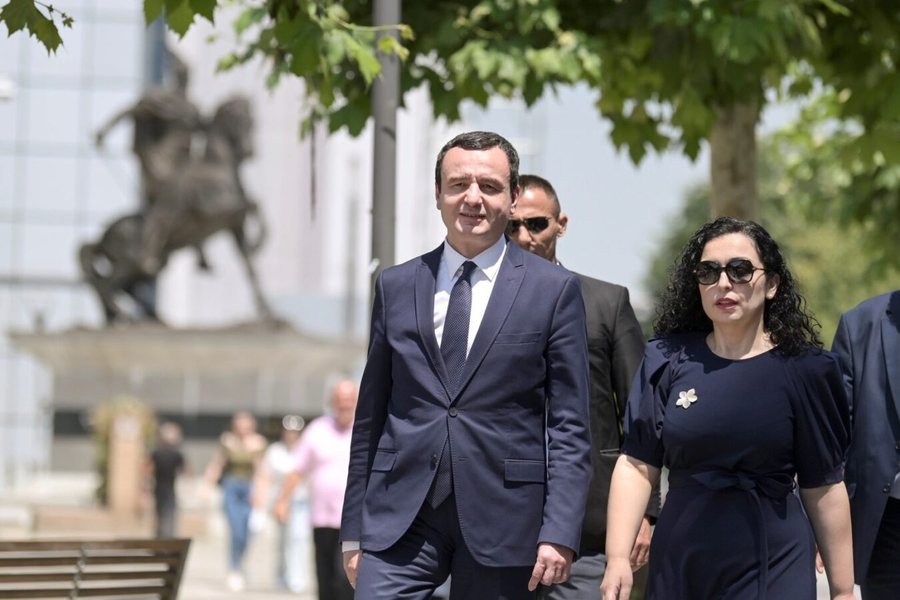Kosovo President’s criticism of Kurti hints at fractures in Kosovo’s leadership

Kosovo President Vjosa Osmani delivered her fourth address to the Parliament, emphasizing the importance of maintaining strong alliances with international partners. Osmani warned against the risks of jeopardizing these relationships, subtly criticizing Prime Minister Albin Kurti’s government for actions that have strained ties with Kosovo’s allies.
Why is this important: Osmani’s pointed remarks underline a widening rift between the President and the Prime Minister, both members of the governing coalition. With national elections on the horizon, these tensions could reshape political dynamics and impact Kosovo’s international standing.
Context: Osmani highlighted the challenges Kosovo faced in its relationships with key partners, citing sanctions imposed by the European Union this year. She stressed the strategic importance of alliances with the United States and EU, stating, “Weakening alliances is a strategic mistake. Partnerships with those who helped us achieve statehood are neither subjugation nor coercion.”
In a clear critique of Kurti’s approach, Osmani described unilateral actions as a “gamble” that endanger Kosovo’s stability. “Risking our alliances or treating them with irreverence undermines the protection of our Republic,” she asserted, urging political leaders to prioritize diplomacy and cooperation.
Rift in coalition: Osmani’s criticism comes as her coalition partner, Albin Kurti, faces backlash from Western allies. This year, Kurti’s government made controversial moves to assert control over northern Kosovo, where ethnic Serbs form the majority. These actions drew sharp rebukes from the United States and the EU, which accused Kosovo’s government of escalating tensions in the region.
While Osmani acknowledged the unbalanced nature of EU-mediated talks between Kosovo and Serbia, she also called for introspection. “We must reflect on our path thus far and explore how we can improve,” she said, suggesting that Kosovo’s leadership should seek constructive solutions without alienating its allies.
What’s next: The apparent divide between Osmani and Kurti raises questions about the cohesion of the governing coalition as the February elections approach. The criticism of Kurti’s governance could bolster opposition parties, who boycotted the parliamentary session where Osmani spoke.
Osmani concluded her address with a call for unity, emphasizing that Kosovo’s alliances are the foundation of its progress. However, the visible tensions within the coalition may complicate efforts to present a united front in addressing domestic and international challenges.
Key takeaway: Osmani’s speech not only reflected concerns about Kosovo’s foreign policy but also highlighted the fragile dynamics within the coalition government. As the nation prepares for elections, the relationship between its two most prominent leaders will likely play a crucial role in shaping its future.


